The Truth About Volunteering in Cusco
January 23, 2013If you are thinking about volunteering in Cusco then this article is a must read. Every year hundreds of people travel to Peru to be part of many volunteer programs. Only a very few of those travellers are fully informed about what they are about to embark on, and many find out the real truth once they arrive in Cusco. Make sure you know the truth about volunteering in Cusco before you travel. Paul Jones a Peru travel expert takes a closer look at volunteering in Cusco, and addresses some of the most commonly asked questions.
My wife jokes with me on a regular basis about the amount of foreigners that regularly walk past our house. She says “Mira! es tú mancha” slang in Peruvian Spanish for “Look! It’s your group, or your people.” I live a good 30 minutes from the centre of Cusco, and in this area there are a lot of homestays used for volunteers. I have probably seen at least 20 different foreigners in the last month alone. Volunteering in Cusco is quite popular, and according to some quick research I did, it seems that Peru is considered to be about the 3rd most desirable place to volunteer after India and Costa Rica.
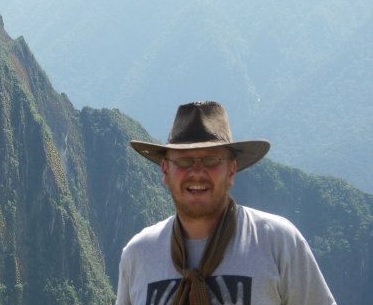 When I first arrived in Peru (quite a few years ago) I also worked as part of a volunteer program. It was something that was arranged through the Amauta Spanish School where I was studying. My experiences were actually quite good. The project I got involved in was in its infancy and run by an enthusiastic local priest, who was dedicated to making it work. However, from talking to other students at the school, I can’t say that everyone had a great “volunteering in Cusco” experience. Some students were working in local hospitals, some were working in care homes, some in orphanages and others were looking after children with learning disabilities. Sadly, the overwhelming impression was that many of the projects that my student friends were attending were very poorly managed. For most students at my school, volunteering in Cusco was not quite what they had envisioned. Most felt a little undervalued and left without guidance and support at their chosen projects. Some students even left their placements only after a few days of starting.
When I first arrived in Peru (quite a few years ago) I also worked as part of a volunteer program. It was something that was arranged through the Amauta Spanish School where I was studying. My experiences were actually quite good. The project I got involved in was in its infancy and run by an enthusiastic local priest, who was dedicated to making it work. However, from talking to other students at the school, I can’t say that everyone had a great “volunteering in Cusco” experience. Some students were working in local hospitals, some were working in care homes, some in orphanages and others were looking after children with learning disabilities. Sadly, the overwhelming impression was that many of the projects that my student friends were attending were very poorly managed. For most students at my school, volunteering in Cusco was not quite what they had envisioned. Most felt a little undervalued and left without guidance and support at their chosen projects. Some students even left their placements only after a few days of starting.
Although I know a fair amount about the travel industry in Peru, I thought it might be a good idea to seek advice from someone who knows a thing or two about volunteering in Cusco. So, last weekend I was lucky enough to meet with Jim Elliott, a fellow Brit and General Manager of the UK registered charity – Globalteer.
I talked to Jim for over 2 hours about volunteering in Cusco, and his insight was interesting and enlightening. I asked a whole series of questions, of which the most important follow:
What is the difference between a commercial company and a charity?
Jim responded “Volunteering in Cusco is really popular for many foreigners, but it is important to understand that there are two types of companies offering volunteering opportunities. There are commercial companies that make money from placing volunteers, and then there are the non-profit organisations or charities who don’t make money. We (Globalteer) as a UK Registered charity have to publish our accounts for everyone to see, meaning that everyone has the right to see just how we spend our money; it’s the law. Being transparent about where are money goes is important for us and those volunteer with us. Some companies are commercial outfits, meaning that there intention is to make a profit from what they do. These companies don’t publish accounts on how they spend their money.”
What is an add-on program though Spanish Schools?
I talked to Jim for a while about my experiences with Spanish Schools, and he commented “An add-on is something which Spanish Schools in Peru offer as part of their remit to make themselves more attractive to potential students.”
How do you avoid bad volunteering projects?
“You must first start by doing some research about the project that you are getting involved in. Ask lots of questions. Where are you going to be volunteering in Cusco? What is your role? What support will you receive from the company offering you the placement? Is the company you are working with a charity or a commercial outfit? You might even want to get references from other people that have worked at the project. If you are paying to volunteer, ask how much of your money will go directly to the project. With a little digging you will soon find out if your volunteering project is well organised, and is having a positive effect in the community.”
ENTERTAINMENT TIP: If looking for fun at night, or to watch sports during the day, or even a taste of home, visit the Wild Rover Hostel Cusco for great food, sports and beer! Entrance to their bar is free even for non-guests
Who makes a suitable volunteer?
After an hour or so of talking to Jim, I was keen to find out his thoughts on volunteers. Who makes a good volunteer? What qualities or skills do they need? I thought his response would target a certain group of people, but actually his response surprised me. He said “Anyone can make a good volunteer. Most volunteers that I meet are enthusiastic and all offer at least 2 or 3 principle skills that we can use. The most important thing is that we take the time to evaluate the person properly, and match their skills with the right project.”
Do you need to be fluent in Spanish to volunteer in Cusco?
Again Jim surprised me with his response “This really depends on the level of support you get form the company that arranges your volunteering in Cusco. For those that volunteer in Cusco with Globalteer, Spanish is not essential. Volunteers will always have the support of one of our permanent bi-lingual staff who can communicate in English. Your English language skills can even be used to teach others English!”

What is a good length of time to volunteer?
When I asked Jim about an appropriate amount of time to dedicate to volunteering in Cusco, he responded “At Globalteer we request a minimum of 1 week, but longer is more desirable. On average most volunteers are with us for 6 weeks, but there are a few which stay with us for much longer. We find that after a few weeks of working as a volunteer, the volunteers become more settled in Cusco, and their contributions to the project are stronger and more valuable. If you can only spare 1 week, then we can always find you something to do that is valuable to our projects, but if you can have more time even better.”
Why should a volunteer consider paying for their volunteering experience? Surely their time is enough!
This was obviously a question that Jim was well adverse with, as his response was precise “All projects need funding. Globalteer works hard every year to obtain grants and donations from cooperate organisations and governments alike. This fund raising along with the money that our volunteers contribute goes directly into running these projects. We charge roughly US$ 1,000 per month for volunteering in Cusco. This fee includes your collection from the airport, an orientation of Cusco, 24 hour in-country support, your accommodation in a private hotel or homestay and a project donation. It’s really not that much, but it allows us to maintain our projects and allows our volunteers to have a wonderful experience and a positive effect whilst in Peru.”
About Globalteer
Globalteer are a UK Registered Charity, that offer volunteering opportunities in many desitnations around the world including: Cambodia, Colombia, Thailand, Malaysia, Indonesia and Peru. Globalateer was founded in 2006 as a non-profit organisation, but quickly gained charitable status in 2007.
Globalteer Official website: www.globalteer.org
The Picaflor House Community Project
The Picaflor House Community Project is located in the village of Oropesa, a 45-minute bus ride from the centre of Cusco, Peru. The project was established by registered UK charity Globalteer in November 2010 to support the children and families of Oropesa and the surrounding villages. The project works closely with the local school in Oropesa to provide the most required services to the children attending the school.
Picoflor House: Official website: www.volunteer-in-peru.org
Making a donation to Picaflor House in Cusco
Donate Here! If you would like to make a donation to help support the Picoflor House project in Cusco.
Globalteer’s Strict Child Protection Policy
Globalteer have a strict child protection policy. They achieve this through compliance with UK child protection laws and relevant laws in each of the countries they operate in, as well as by adherence to the United Nations Convention on the Rights of the Child (UNCRC) 1989. Relevant back-ground checks are carried out on all volunteers and staff the work with Globalteer.
Credits
This article “The Truth About Volunteering in Cusco” was brought to you in conjunction with Jim Elliott General Manager of Globalteer and the Peru travel experts at TheOnlyPeruGuide. For more information on volunteering in Cusco or for tourist information about Cusco take some time to visit other pages within our Guide to Peru.
YOU MAY LIKE
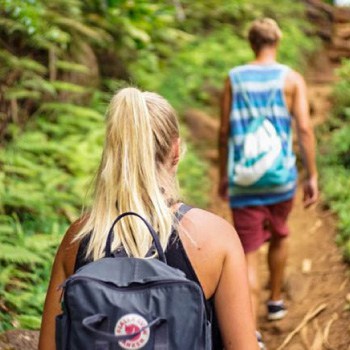
Lima to Machu Picchu – Agencies DON’T want you to read this!

#1 Rated Day Trips From Lima To Unforgettable Destinations
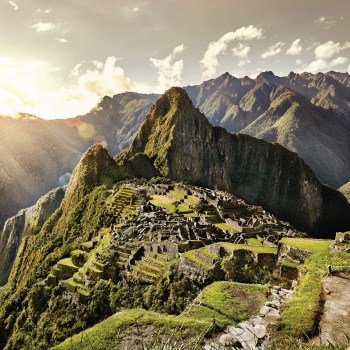
Everything You Need to Know to Avoid the Typical Tourist Mistakes At Machu Picchu

What NOT To Do When Visiting Rainbow Mountain
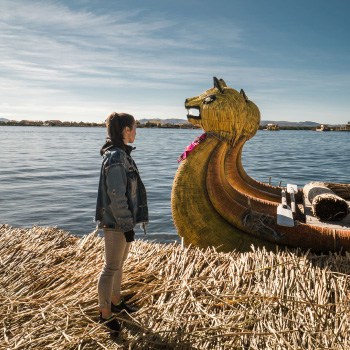
Spend 50% less and see 100% more in Peru
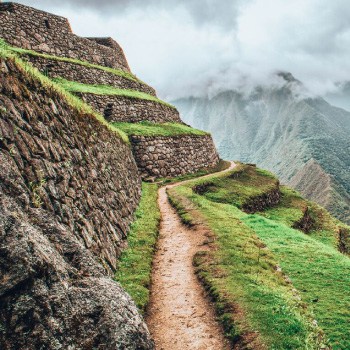
Machu Picchu Tickets – All You Need To Know!
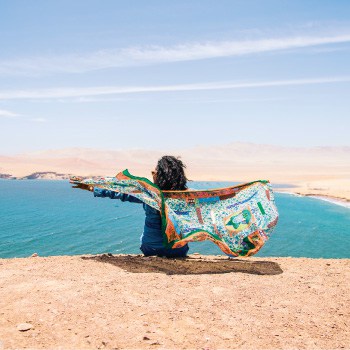
These Hidden Destinations Just Outside Of Lima Will Blow Your Mind!
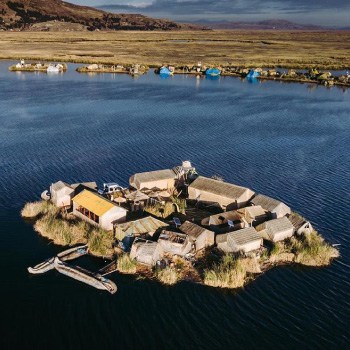
Peru – How to Avoid Being a Typical Tourist
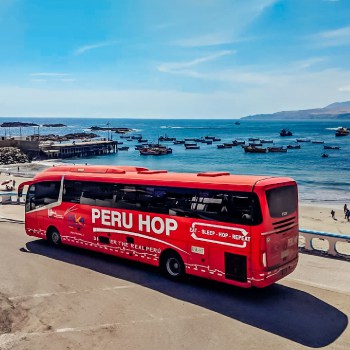
OFFICIAL: This Company Was Voted The Best Way To Get Around Peru
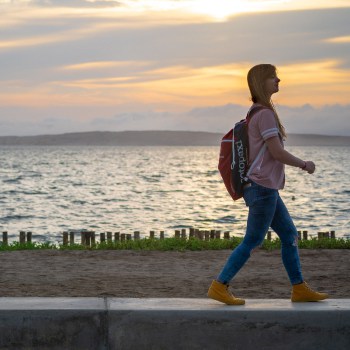
Peruvian Travel Secrets That Only The Locals Know


